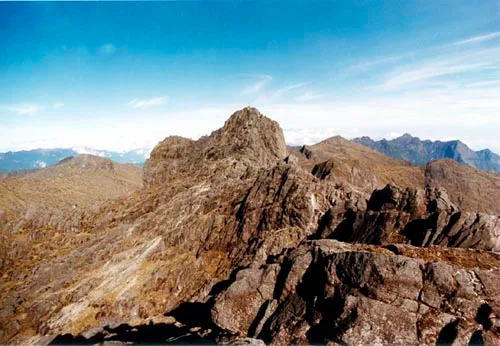 |
| Papua New Guinea |
Papua New Guinea
Europeans first arrived in Papua New Guinea in the 16th century, and it was subsequently settled in the 19th century by both the Germans and British. Long governed by Australia in modern times, it finally gained its full independence in 1975.
Papua New Guinea includes the eastern half of the island of New Guinea, the islands of the Bismarck Archipelago, and the island of Bougainville, itself still (politically) part of the Solomon Islands.
The central core of the main island is mountainous with deep, green valleys dotted with mysterious and remote villages. There are still no significant cross-country roads from the capital city, and most vital transportation depends on small aircraft and the over 400 isolated airports.
Much of the inland population lives in primitive conditions and there are over 700 different languages spoken among the various native tribes.
Facts and Figures
Population 5,670,544 (2006 estimate)
Official Currency Kina
Land Area 452,860 sq km (174,849 sq miles)
Highest Point Mt. Wilheim, 14,794 ft. (4,509 m)
Climate Located just south of the Equator, Papua New Guinea's weather is warm and humid year-round, with heavy seasonal monsoon rains. Summers are quite hot, especially along the coastal areas, while in the inland mountains, temperatures do moderate.
Rainfall is rather consistent throughout the year, with the heaviest amounts falling in the rainy season (December-March).
 |
| The Parliament building of Papua New Guinea in Port Moresby |
Interesting & Fun Facts about Papua New Guinea:
The island of New Guinea was named after the country of Guinea in Africa.
Papua New Guinea consists of the eastern half of the island of New Guinea - the islands of New Britain, New Ireland, Bougainville and around six hundred smaller islands, north of Australia.
The island of New Guinea is shared with Indonesia (Papua, former Irian Jaya).
New Guinea is one of the largest islands in the world.
The Kuk Early Agricultural Site, inscribed on the World Heritage List in 2008, consists of swamps in the highlands of New Guinea. It has been discovered that the land has been drained, possibly for as long as ten thousand years. Evidence of agriculture dates back to six and a half thousand years ago.
 |
| Kuk Early Agricultural Site. |
Papua New Guinea is one of, if not the most, heterogeneous nations in the world. There are hundreds of ethnic groups indigenous to Papua New Guinea
 |
| Papua New Guinea – Goroka – Festivity of Independance. |
Papua New Guinea has a greater density of languages than any other nation on earth, except Vanuatu. It has over 850 indigenous languages and at least as many traditional societies, out of a population of just under 6 million.
 |
| Goroka – Black and Red face with matching headpiece |
Papua New Guinea has only 18 per cent of its people living in urban centres.
 |
| Port Moresby |
Papua New Guinea is also one of the least explored countries of the world, culturally and geographically. Many undiscovered species of plants and animals are thought to exist in its interiors.
Unique Animals and Plant Pictures of Papua New Guinea:
 | |
| papua-new-guinea-tube-nosed-fruit-bat |
 |
| papua-new-guinea-new-litoria-frog |
 |
| papua-new-guinea-new-spider |
 |
| papua-new-guinea-new-caedicia-katydid |
 |
| Pink orchids, Papua New Guinea. |
 |
| Carrotwood NATIVE RANGE |
Portuguese navigators are said to be the first Europeans to have sighted the island of New Guinea.
In 1971, the Territory of Papua and New Guinea was renamed Papua New Guinea.
Papua New Guinea gained full independence from Australia in September 1975.
The Independent State of Papua New Guinea became a member of the Commonwealth in 1975.
The monarch of the United Kingdom serves as the Head of State of Papua New Guinea.
The highest point in the Independent State of Papua New Guinea is Mount Wilhelm (4,509 m).
 |
| mount_wilhelm |
 |
| Mount Tavurvur in Papua New Guinea. |
The national sport of Papua New Guinea, although not official, is considered to be rugby league.
 |
| The world-famous Asaro Mudmen have always been a feature of the Goroka Show |
 |
| Professional Rugby League |
Papua New Guinea is one of the few regions close to the equator that experience snowfall, which occurs in the most elevated parts of the mainland.
 |
| Gamlehaugen snow pan in Papua New Guinea |
























 Online Movies
Online Movies
No comments:
Post a Comment